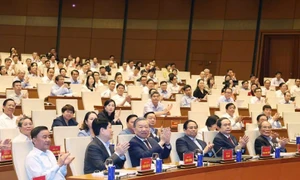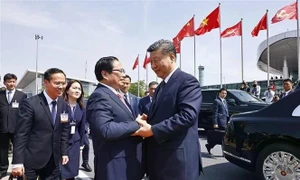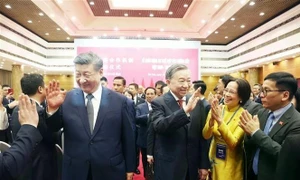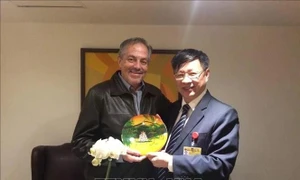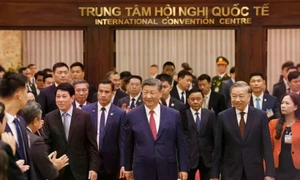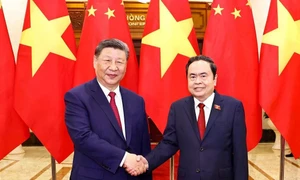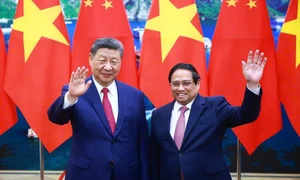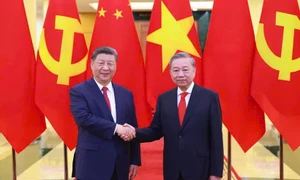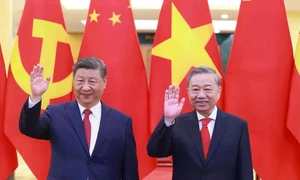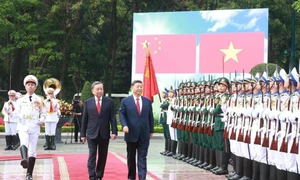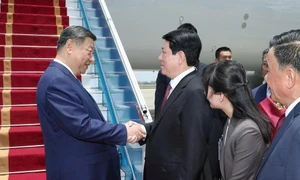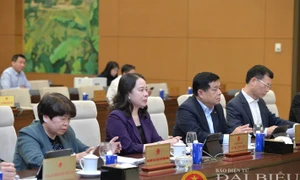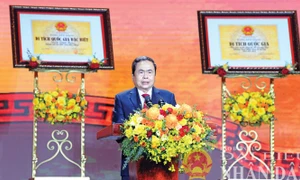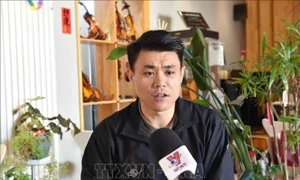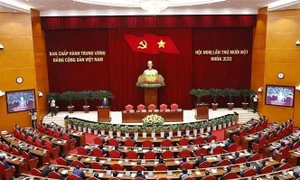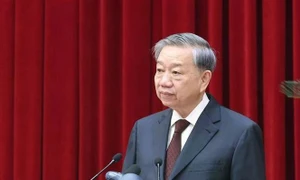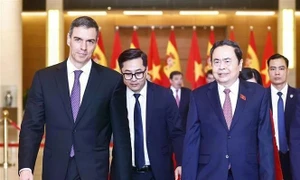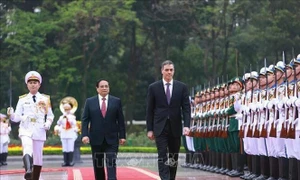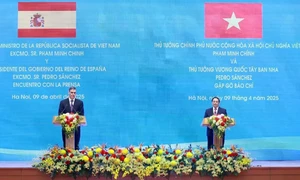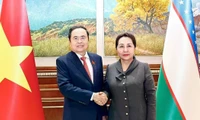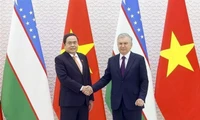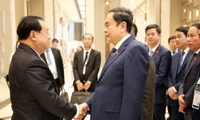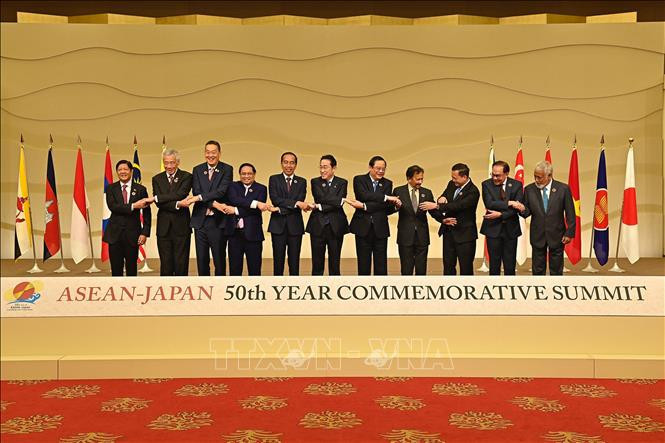
He made the call at the Commemorative Summit for the 50th Year of ASEAN-Japan Friendship and Cooperation in Tokyo on December 17.
The Vietnamese government leader hailed the significance of the summit, and applauded the solidarity and cooperation between ASEAN and Japan, especially during the tough times such as the financial crisis in Asia during 1997-1998, the COVID-19 pandemic or natural disasters in each region.
Based on the development of the bilateral ties over the past 50 years, PM Chinh proposed three orientations to make the relations become an exemplary model and a positive factor that has an important role to play in ensuring a peaceful, stable environment for development and win-win cooperation in the region.
He suggested that the two sides enhance strategic coordination, join hands to build an open, inclusive and rule-based regional structure, with ASEAN playing a central role.
Japan should continue raising its voice to support ASEAN’s stance on the East Sea issue, assist Mekong sub-regional countries in effectively responding to non-traditional security challenges, soon resume the Mekong cooperation mechanism, and prioritise programmes and projects to support sustainable development in the spirit of “leaving no one behind”, he said.
He laid stress on investment in humans, who are the subject, target, driving force and resources for development in general and the relations between ASEAN and Japan in particular, and welcomed cultural-social exchange activities and people-to-people exchanges in the framework of the ASEAN-Japan heart-to-heart partnership, including 500 activities held to mark the 50th anniversary of the relations in 2023.
He proposed that the two sides should concretise the “heart-to-heart” partnership into an action-to-action and feeling-to-effectiveness relationship, with practical and specific cooperation projects, programmes and plans in the framework of the ASEAN-Japan Comprehensive Strategic Partnership.
Highlighting four connections in the bilateral ties, PM Chinh said ASEAN and Japan should enhance connection in economy, trade and investment which he described as the key and motive for the development of the Comprehensive Strategic Partnership; promote connection in infrastructure, especially strategic one; expand connection in new areas, especially innovation, digital transformation, green economy, circular economy, intellectual economy and smart agriculture, turning them into new growth locomotive and new vitality for the ASEAN-Japan cooperation in the future; and prioritise connection to carry out sustainable development goals, and should not sacrifice social progress and justice and the environment for pure economic growth..
With political trust as the foundation, economic cooperation as the driver, and people-to-people exchange as the centre of the ASEAN-Japan relations, PM Chinh expressed his hope that the ties will overcome all challenges, and go farther in the next 50 years and beyond.
At the summit, leaders of ASEAN countries affirmed that they value the solidarity and cooperation with Japan, ASEAN's oldest and most reliable partner, contributing to the development of each side as well as peace, stability and prosperity of the entire region.
To date, ASEAN-Japan cooperation has expanded to all fields and the two sides have upgraded their relationship to a comprehensive strategic partnership in September 2023. Notably, two-way trade reaches 268.5 billion USD, and investment hits 26.7 billion USD in 2023.
The two sides agreed to develop their relationship in a practical and effective manner, commensurate with the stature of the comprehensive strategic partnership, thus bringing practical benefits to their people.
They agreed to make efforts to maintain and promote trade and investment exchanges, stabilise production and supply chains in the region, and create more favourable conditions for exports to each other's markets. ASEAN and Japan will expand cooperation in new and potential areas such as green economy, digital economy, and circular economy.
The leaders also pledged to strengthen cooperation through people-to-people exchanges, and in tourism, innovation, digital transformation, energy, natural disaster management, and climate change response, as well as in ensuring maritime security, and fighting terrorism and transnational crimes.
Leaders of ASEAN member states welcomed Japan’s consideration of ASEAN as a priority in its foreign policy in general and its Free and Open Indo-Pacific (FOIP) in particular, as well as its commitment to maintaining support and assistance for ASEAN in building the ASEAN Community and promoting the bloc's centrality in the region.
On this occasion, Japanese Prime Minister Fumio Kishida announced an aid grant worth 40 billion JPY (281 million USD) for people-to-people exchanges and cultural-educational cooperation, and 15 billion JPY for international researcher exchange programmes (following the additional funding of 14.2 billion JPY to the Japan- ASEAN Integration Fund (JAIF) announced at the beginning of this year).
Discussing a number of international and regional issues of common concern, delegates agreed that in the context of complexity, instability, and increasing conflicts, countries in the region need to strengthen cooperation to maintain a peaceful and stable environment for development, promote a culture of dialogue, and peacefully handle disputes, including in the East Sea, on the basis of international law, including the 1982 United Nations Convention on the Law of the Sea (UNCLOS).
At the end of the summit, leaders of participating countries adopted the “Joint Vision Statement on ASEAN-Japan Friendship and Cooperation: Trusted Partners”, and its Implementation plan as a basis to implement the ASEAN-Japan Comprehensive Strategic Partnership in the coming time./.

